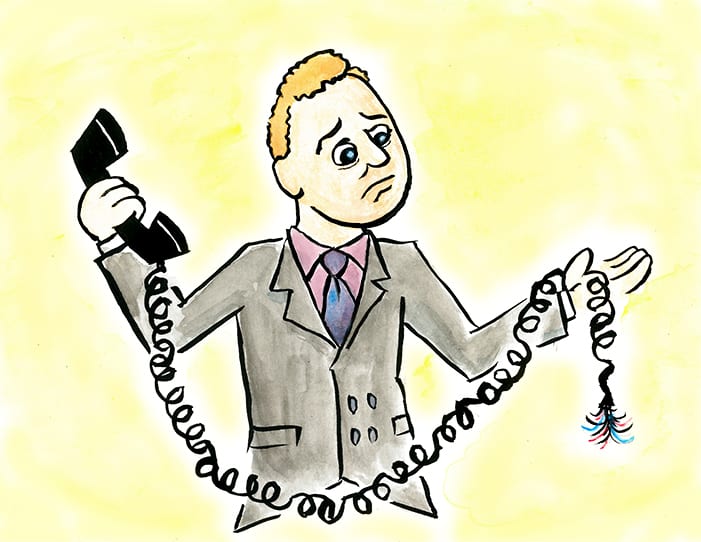 I’ve noticed a disturbing trend: a decline in share of voice. No, not that share of voice… I’m talking about the familiarity, trust and nuance gained by connecting via the spoken word. It seems that, in this increasingly digital landscape, the phone call has all but disappeared. The aversion is so great that I’ve even begun to notice colleagues commenting on how the lack of a “human touch” is leading to less intimacy in their professional relationships.
I’ve noticed a disturbing trend: a decline in share of voice. No, not that share of voice… I’m talking about the familiarity, trust and nuance gained by connecting via the spoken word. It seems that, in this increasingly digital landscape, the phone call has all but disappeared. The aversion is so great that I’ve even begun to notice colleagues commenting on how the lack of a “human touch” is leading to less intimacy in their professional relationships.
As communications counselors, the digital age has provided us with a bounty of ways to connect and communicate beyond the seemingly antiquated voice call. Our Ann Wool’s recent blog post about the use of Whatsapp at the Rio Olympics shows us that, under the right circumstances, instant messaging and social banter is not only better than voice, but it enhances the experience of connecting in ways voice alone simply cannot. But that isn’t always the case. Most marketers would agree that we are collectively at our best when the information we are basing our decision-making on isn’t relegated to a 140-character text stream, or a video <30 seconds.
I’ve heard lots of excuses for it like, “text is faster,” or “it’s really important to make sure we have an email record of our decision making… just in case.” Well, sure, but not at the expense of every verbal interaction being replaced by a text-based one. What these responses are ultimately hiding is a fear of saying the wrong thing, not knowing the answer to every question and, frankly, being more than a little intimidated by whomever is on the other end of the phone. As counselors, we are allowed to not have the answer to every question instantly in mind (we are problem-solvers after all), and intimidating people will only remain intimidating if you don’t attempt to build a substantive relationship with them.
The fact is that while the spoken word has been dramatically augmented in our day-to-day communications by digital platforms, it will never totally disappear (click to tweet). And I, for one, am personally voting for its resurgence. Our business is founded upon dialog. Imagine the possibilities: More efficient workflow with improved outcomes, fruitful and longer-lasting client relationships, and even better personal time-management could all be just a phone call away.
There are exceptions to the rule. For instance, if you work for/with a disruptive brand that operates within 17 digital platforms daily, and that is truly where the communications comfort zone is, then so be it. But let’s be aware that most brands are run by those that value – and yearn for – personal attention and connection. All counselors should be cognizant of how they are engaging with their clients and journalist contacts, and when to adjust communications to the appropriate channel for the best results.
Do you have any thoughts or questions about this post? Then give me a call!